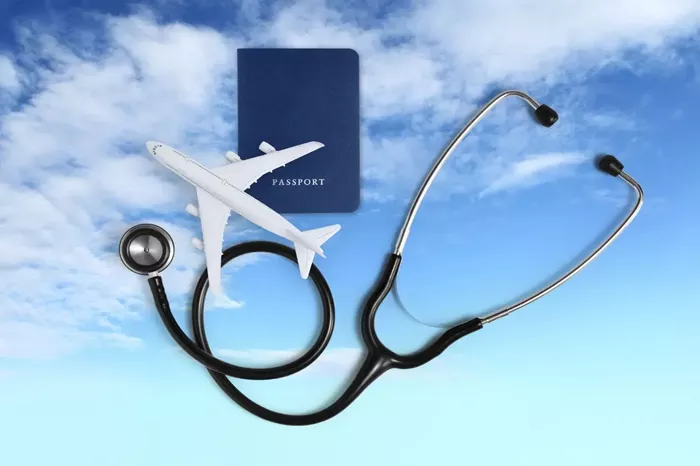Travel is an exciting and enriching experience, but it can also come with its own set of risks and uncertainties. One of the critical concerns for travelers is health and medical emergencies that may arise during their journey. With the increase in international travel and the complexities associated with healthcare systems across different countries, a common question arises: Does medical insurance cover travel? This article will explore the intricacies of medical insurance coverage for travel, helping travelers understand what is typically covered, what is not, and how to ensure they are adequately protected.
Understanding Medical Insurance
Medical insurance, also known as health insurance, is designed to cover the cost of medical expenses for illnesses, injuries, and other health-related issues. These expenses can include doctor visits, hospital stays, surgeries, medications, and preventive care. The specifics of what is covered can vary widely depending on the policy, the insurance provider, and the country in which the policy is issued.
Types of Medical Insurance
There are several types of medical insurance, each serving different needs and circumstances:
Private Health Insurance: This type of insurance is purchased by individuals or families and is often customizable to meet specific needs. It can cover a wide range of medical services and may offer international coverage options.
Employer-Sponsored Health Insurance: Many employers provide health insurance as part of their benefits package. These plans can offer comprehensive coverage, but the extent of international coverage may vary.
Government Health Insurance: In many countries, the government provides health insurance to residents. Coverage under these plans may be limited to the country of residence and may not extend to international travel.
Travel Health Insurance: Specifically designed for travelers, this type of insurance provides coverage for medical emergencies that occur while traveling. It is typically purchased separately from regular medical insurance and can offer a range of coverage options.
International Travel and Medical Insurance
When traveling internationally, understanding the extent of your medical insurance coverage is crucial. Many standard health insurance policies do not provide adequate coverage for medical expenses incurred abroad. Travelers may face substantial out-of-pocket costs if they require medical attention while outside their home country. This is where travel health insurance comes into play.
What Travel Health Insurance Covers
Travel health insurance is specifically designed to cover medical emergencies that occur while traveling. Coverage can include:
Emergency Medical Treatment: This includes the cost of medical care for illnesses and injuries that occur during the trip, such as doctor visits, hospital stays, surgeries, and medications.
Emergency Medical Evacuation: In case of severe medical emergencies, travel health insurance can cover the cost of transporting the traveler to the nearest appropriate medical facility or even back to their home country if necessary.
Repatriation of Remains: In the unfortunate event of a traveler’s death, travel health insurance can cover the cost of returning their remains to their home country.
Accidental Death and Dismemberment (AD&D): Some policies offer coverage for accidental death or severe injuries resulting in dismemberment during the trip.
Trip Interruption or Cancellation: Certain travel health insurance plans provide coverage for trip interruption or cancellation due to medical emergencies, reimbursing non-refundable expenses such as flight tickets and accommodation.
24/7 Assistance Services: Many travel health insurance providers offer 24/7 assistance services to help travelers find medical care, coordinate emergency services, and provide support in foreign languages.
Limitations and Exclusions
While travel health insurance offers valuable coverage, it is essential to understand its limitations and exclusions:
Pre-Existing Conditions: Most travel health insurance policies do not cover pre-existing medical conditions. Travelers with chronic health issues should check if their policy offers any coverage or consider purchasing a plan that includes a pre-existing condition waiver.
High-Risk Activities: Activities such as extreme sports, adventure tourism, and certain recreational activities may not be covered under standard travel health insurance policies. Travelers engaging in these activities should look for specialized coverage.
Non-Emergency Medical Care: Routine medical care, elective procedures, and non-emergency treatments are typically not covered by travel health insurance. Travelers needing ongoing medical care should plan accordingly.
Travel to High-Risk Destinations: Coverage may be limited or excluded for travel to regions with high levels of political instability, war, or other risks. Travelers should check the policy’s terms regarding specific destinations.
Duration of Coverage: Travel health insurance policies have specific coverage durations, often aligned with the length of the trip. Long-term travelers should ensure their policy covers the entire duration of their journey.
How to Choose the Right Travel Health Insurance
Selecting the right travel health insurance involves considering various factors to ensure comprehensive coverage. Here are some key steps to guide the process:
Assess Your Health Needs
Evaluate your health status, including any pre-existing conditions, medications you are taking, and potential medical needs during your trip. This assessment will help you choose a policy that adequately covers your specific health requirements.
Research and Compare Policies
Research different travel health insurance providers and compare their policies. Look for coverage options, limits, exclusions, and additional benefits. Online comparison tools and reviews can be helpful in making an informed decision.
Check for Pre-Existing Condition Coverage
If you have pre-existing medical conditions, look for policies that offer coverage or a waiver for these conditions. Some providers may require a medical evaluation or additional premium for such coverage.
Understand the Coverage Limits
Carefully read the policy details to understand the coverage limits for medical treatment, evacuation, and other services. Ensure the limits are sufficient to cover potential medical expenses in your destination country.
Consider High-Risk Activities
If you plan to engage in high-risk activities, such as skiing, scuba diving, or mountain climbing, ensure your policy covers these activities. Some insurers offer add-ons or specialized plans for adventure sports.
Review the Assistance Services
Look for policies that provide 24/7 assistance services. These services can be invaluable in emergencies, helping you find medical care, arrange transportation, and communicate with healthcare providers in foreign languages.
Verify the Network of Providers
Check if the insurance provider has a network of medical providers in your travel destination. Access to a network can facilitate finding quality medical care and may reduce out-of-pocket expenses.
Understand the Claim Process
Familiarize yourself with the claim process and documentation requirements. Knowing how to file a claim and what documents are needed will streamline the process in case of a medical emergency.
Read Reviews and Testimonials
Reading reviews and testimonials from other travelers can provide insights into the reliability and customer service of the insurance provider. Positive feedback from other customers can indicate a trustworthy provider.
See Also: Annual & Single Trip: What Is the Difference
Case Studies and Real-Life Examples
Examining real-life examples can help illustrate the importance of travel health insurance and the potential scenarios where it can be beneficial:
Case Study 1: Medical Emergency in a Remote Location
John, an avid traveler, decided to explore the remote areas of Southeast Asia. During his trip, he contracted a severe bacterial infection and required immediate medical attention. The local healthcare facilities were not equipped to handle his condition, and he needed to be evacuated to a major city for treatment. Fortunately, John had purchased travel health insurance that covered emergency medical evacuation. The insurance company arranged for his transportation to a well-equipped hospital, covering all associated costs. Without travel health insurance, John would have faced exorbitant expenses and logistical challenges in arranging his evacuation.
Case Study 2: Adventure Tourism Accident
Emma, a thrill-seeker, embarked on a mountain climbing expedition in South America. During her climb, she fell and sustained multiple fractures. The remote location made it challenging to access medical care. Emma’s travel health insurance included coverage for high-risk activities and emergency medical treatment. The insurance provider coordinated her rescue and transportation to a specialized medical facility, covering all medical expenses and ensuring she received the necessary treatment. Without travel health insurance, Emma would have faced significant medical bills and complications in receiving timely care.
Case Study 3: Chronic Condition Management
Sarah, who has a chronic medical condition, planned a month-long vacation in Europe. Concerned about her health needs, she researched travel health insurance policies that covered pre-existing conditions. She found a policy that offered a pre-existing condition waiver and included coverage for her ongoing medical needs. During her trip, Sarah experienced a flare-up of her condition and required medical attention. The travel health insurance covered her medical expenses, ensuring she received the necessary care without financial burden. Without the right travel health insurance, Sarah would have faced challenges in managing her condition abroad.
Common Questions and Misconceptions
Travelers often have questions and misconceptions about travel health insurance. Addressing these can help clarify the importance and scope of coverage:
Do I Need Travel Health Insurance if I Have Re#gular Medical Insurance?
Regular medical insurance may offer limited or no coverage for medical expenses incurred abroad. Travel health insurance provides specialized coverage for international travel, ensuring you are protected against medical emergencies in foreign countries.
Can I Rely on the Healthcare System of My Destination Country?
Healthcare systems vary widely across countries, and access to quality medical care may be limited in some regions. Travel health insurance ensures you can receive appropriate medical care and emergency services, regardless of the local healthcare infrastructure.
Is Travel Health Insurance Expensive?
The cost of travel health insurance can vary based on factors such as coverage limits, duration of travel, and the traveler’s age and health condition. However, the potential cost of medical emergencies abroad can far exceed the premium for travel health insurance, making it a worthwhile investment.
Does Travel Health Insurance Cover COVID-19?
Many travel health insurance policies now include coverage for COVID-19-related medical expenses. It is essential to check the policy details and any specific requirements or exclusions related to COVID-19 coverage.
Can I Purchase Travel Health Insurance After Departing?
Some travel health insurance providers allow travelers to purchase coverage after departing, but this may come with limitations or higher premiums. It is advisable to purchase travel health insurance before starting your trip to ensure comprehensive coverage.
Does Travel Health Insurance Cover Trip Cancellation for Any Reason?
Trip cancellation coverage varies by policy. Some policies offer “cancel for any reason” (CFAR) coverage, allowing you to cancel your trip for various reasons and receive partial reimbursement. Standard trip cancellation coverage typically applies to specific reasons such as medical emergencies, natural disasters, or travel advisories.
What Should I Do in a Medical Emergency Abroad?
In a medical emergency abroad, contact your travel health insurance provider’s assistance service immediately. They can guide you on finding medical care, arranging transportation, and managing the claims process. Keep all medical and expense documentation for claim purposes.
Conclusion
Travel health insurance is an essential component of travel planning, providing peace of mind and financial protection in case of medical emergencies. Understanding the coverage options, limitations, and selecting the right policy can ensure you are well-prepared for any health-related issues that may arise during your journey. By investing in travel health insurance, you can focus on enjoying your travel experiences with the assurance that you are protected against unexpected medical expenses.






















